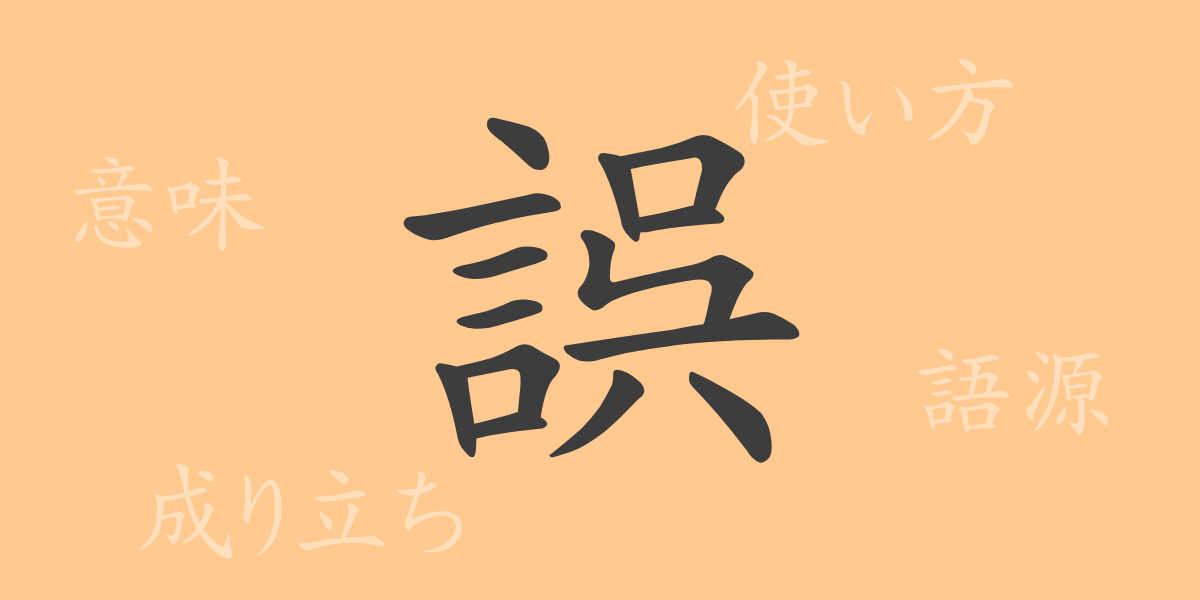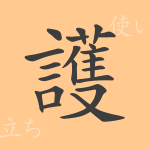Words are the foundation of communication, deeply rooted in our daily lives. Each kanji character that makes up these words carries a long history and profound meaning. This time, we focus on the commonly used kanji “誤” (あやま.る, あやま.ち), often seen in daily life but rarely contemplated for its background. Let’s explore the origins, meanings, usage, and idiomatic expressions of “誤” to uncover its charm.
Origins of 誤 (Etymology)
The kanji “誤” (あやま.る, あやま.ち) was formed in ancient China. “言” (ことばへん, speech) represents words from the mouth, while “呉” (ご) originally denoted a sound. Together, they signify “words incorrectly conveyed,” symbolizing errors in communication. This kanji has been used across ages to represent mistakes in word transmission.
Meanings and Usage of 誤
The kanji “誤” (あやま.る, あやま.ち) signifies “mistake,” “error,” or “incorrectness.” Generally, it denotes making a mistake or deviating from what is considered correct. Used as both a verb and a noun, it appears in various contexts, such as “誤解” (ごかい, misunderstanding) and “誤算” (ごさん, miscalculation), expressing different types of errors.
Readings, Stroke Count, and Radical of 誤
The kanji “誤” (あやま.る, あやま.ち) has the following basic information:
- Readings: The on’yomi (音読み) is “ゴ” (ご), and the kun’yomi (訓読み) are “あやま.る” (ayama.ru) and “あやま.ち” (ayama.chi).
- Stroke count: 誤 has a total of 14 strokes.
- Radical: The radical is 言 (ことばへん, speech).
Idioms, Phrases, and Proverbs Using 誤
There are many idioms, phrases, and proverbs in Japanese that include the kanji “誤” (あやま.る, あやま.ち). Here are a few examples:
- 誤解 (ごかい): Misunderstanding or misconstruing the intentions or facts of the other party.
- 誤字 (ごじ): A typo or incorrect character.
- 誤算 (ごさん): Miscalculation or incorrect forecast.
- 誤魔化す (ごまかす): To deceive or hide the truth.
- 誤診 (ごしん): Incorrect medical diagnosis.
These expressions are frequently used in everyday conversations and business settings, highlighting the importance of clear communication to avoid misunderstandings.
Summary of 誤
The commonly used kanji “誤” (あやま.る, あやま.ち) frequently appears in our daily lives, yet its deep meaning and origin might often go unnoticed. This explanation provides insight into the historical and cultural background of “誤,” enhancing our awareness when using language. Accurate communication is essential for avoiding misunderstandings and fostering better human relationships. Learning the meanings embedded in each kanji encourages us to use words thoughtfully.

























